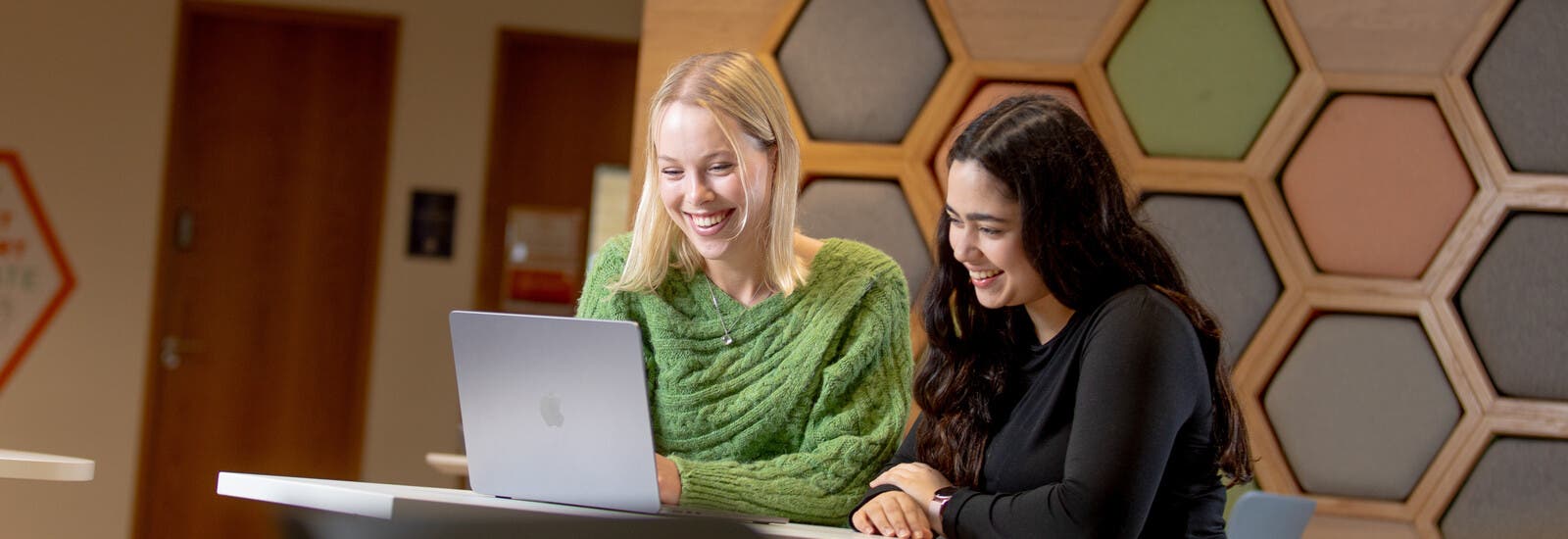International Hospitality and Tourism Management International Year One
About this route
Our International Year One in International Hospitality and Tourism Management is a programme for ambitious international students aiming for a career in this exciting and fast-growing sector.
During the International Year One you will study a range of modules designed to specifically prepare you for these degree aims, as well as Academic English Skills to improve your language proficiency.
Why study Hospitality and Tourism Management?
Study at Surrey’s renowned School of Hospitality and Tourism
Surrey is the UK’s top university for tourism, transport, travel and heritage studies, with the School of Hospitality and Tourism Management having an outstanding global reputation, and an award-winning Professional Training placements preparing students for roles in industry.
Practical work experience
After completing your International Year One and achieving the required grades, you’ll progress to the second year of your undergraduate degree with an option to take part in the Professional Training Year programme between year three and four. Here you’ll be able to put what you’ve learnt into practice, whilst developing the skills to impress potential employers. You will be able to select the option before you progress to the University. The University of Surrey will provide guidance and support in year one and two in helping you to find the right placement.
Academic English Skills aims to provide thorough training in the language and related academic skills which will enable international students to best achieve their academic potential throughout their University study.
Subject-specific modules
Semester 1
Businesses do not exist in isolation. They must operate within a complex and sometimes turbulent environment. The key forces facing businesses are economic, political, technological, demographic, social-cultural, ethical as well as ecological environments.
All managers in service industries need to be able to understand, analyse and improve the processes for which they are responsible. In order to be able to do this effectively they need to understand the nature and purpose of the service concept and the fundamental ways processes and people deliver this.
This module introduces students to the study of hospitality from a multi-disciplinary approach. It will demonstrate the size and scope of the industry and its complex nature. It will examine the various sectors within the national and international industry and highlight the concepts, principles, influences and trends of the industry as a whole.
The travel and tourism industry comprises several main sectors, e.g., accommodation, visitor attractions, travel distribution, and sub-sectors of transportation including aviation, cruise, land-based transport and transport infrastructure. This module focuses on the economic and operational characteristics of each sector and sub-sector, and the ways in which they interact in the production of travel and tourism products and services.
Semester 2
This module is intended to provide an introduction to financial accounting. It is aimed at students who are not majoring in accounting or finance but who are studying an introductory level of accounting and finance as part of their programme in management and is particularly focused on students specialising in the Hospitality, Tourism and Events sectors.
This module introduces the core principles of services marketing and consumer behaviour considering service characteristics. In doing so students will be dealing with a variety of marketing topics allowing them to appreciate the complexity of the topic as well as relevant theories and models service providers can take advantage of in terms of managing the service experience for their customers.
This module aims to provide exposure to the working environment of rooms division through exposure to hotel operations through a series of lectures, guest speakers, workshops and directed tasks to the underlying theory and business processes in this important area of operations. The emphasis here is on an operational understanding.
During the 20th century tourism has developed into one of the major activities and industries in the world and it looks set to continue its global importance in the new century. Against this background there is a need to consider the context to this development and to appreciate the current position and influences on the demand for tourism. With this background, students will be able to understand the nature of the industry and its management issues.
Progression degrees
This programme can lead to one of the undergraduate degrees in the table below. Grades and progression degrees are guidelines and subject to change. All degrees listed include the option to undertake the Professional Training Year programme in year three of a four year degree.
Please note, for English Grades: W stands for Writing, R is Reading, L is Listening and S is Speaking.
| Degree Programme Name | Award | Overall Grade | English Grade |
|---|---|---|---|
| No Results | |||
Key facts
Course length:
Two semesters
Entry points:
September, November (Enhanced Induction) and January
Age: you must be at least 17 years old to study at the International Study Centre and progress to the University.
Visit our entry requirements page for a list of academic, English language and country-specific entry requirements.
Programme is subject to approval
